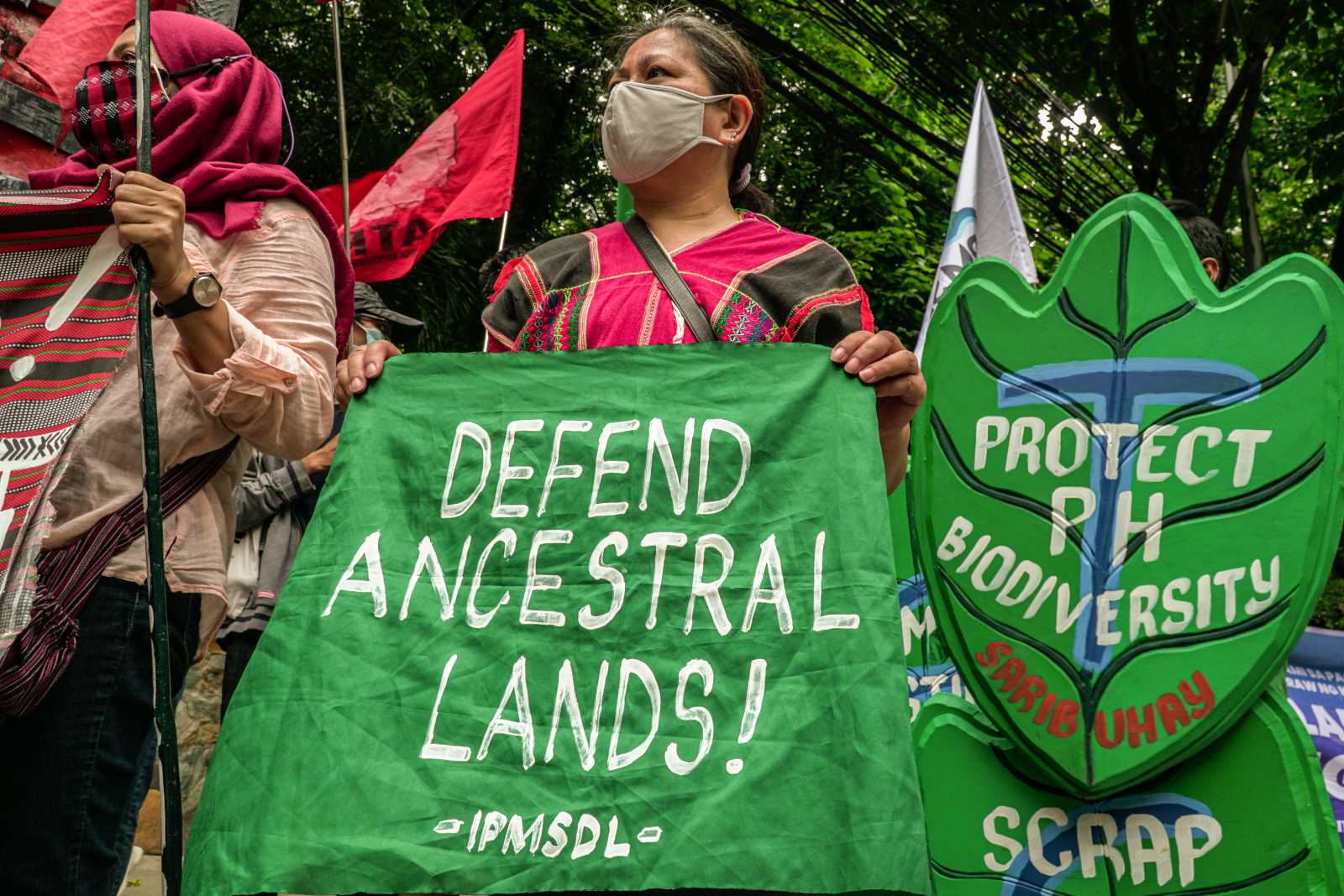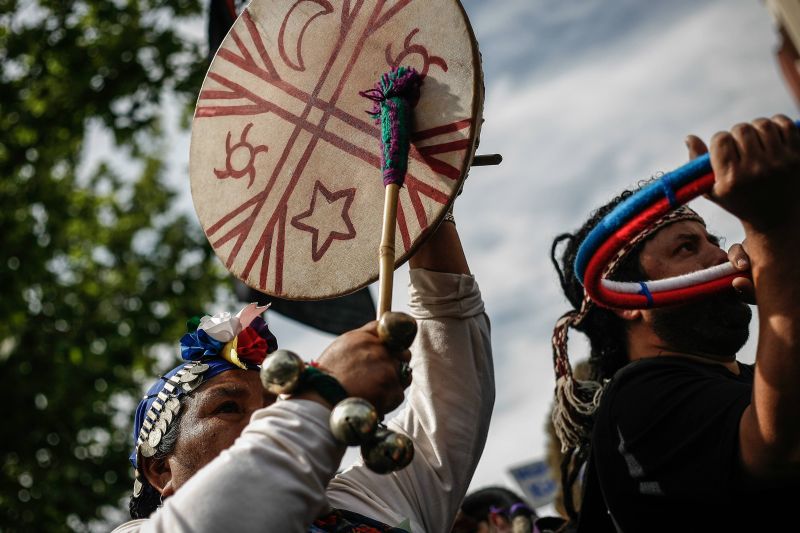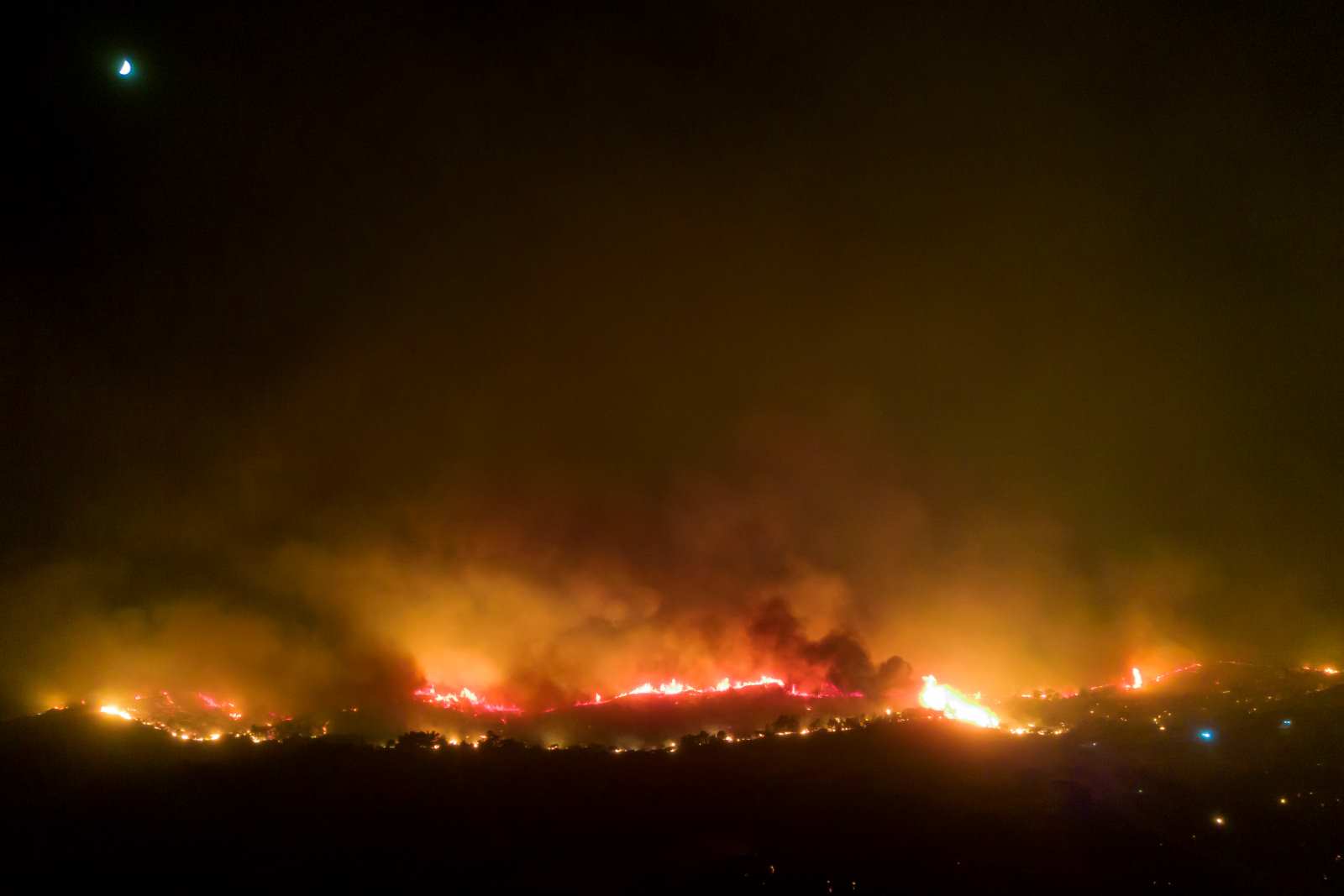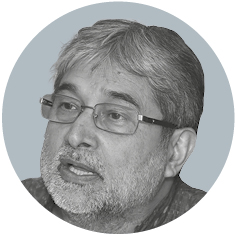Human rights
How indigenous spirituality matters
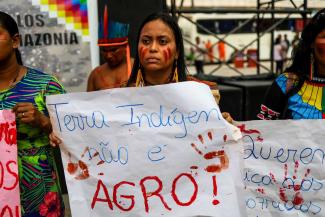
In what sense is the religious freedom of indigenous peoples at risk?
Well, in the first place, indigenous peoples themselves and their lifestyles are threatened, and that has religious connotations. The recent UN summit on biodiversity in Colombia emphasised that these communities play a vital role in the protection of ecosystems. They also contribute to climate mitigation. Indigenous systems of knowledge, however, are rooted in spirituality and not based on scientific expertise. For several reasons, their belief systems are normally not taken seriously by the majority population of the countries they live in, and they are also generally disregarded in international affairs. One can easily trace this neglect back to the beginnings of colonisation. Even today, indigenous peoples and their cosmological thinking remains largely invisible in public debate. Adding to the problems, people who consider themselves to be enlightened in a modern sense are often reluctant to think in spiritual terms at all.
Are there any consequences, for example when indigenous rights and their traditional ownership are violated in the context of conflicts over land?
Yes, there are. My experience in Honduras, for example, was that state agencies often did not understand what indigenous activists really wanted. They were not demanding land titles for clearly demarcated plots. They were insisting on a discourse on how forestland should or should not be used, regardless of who owns which hectare. Social anthropologists teach us that, according to the cosmological visions of many indigenous peoples, it is absurd to draw lines to divide up land. They tend to see human beings as components of nature, rather than nature as our environment. In indigenous eyes, it is generally unacceptable to make others the objects of one’s own action. These indigenous cosmologies deserve respect, according to the International Labour Organization’s Indigenous and Tribal People’s Convention (ILO Convention 169).
It also states that no large infrastructure or mining projects are allowed on indigenous land unless the affected communities have given their free, prior and informed consent. If indigenous ideas, however, are not really compatible with legal concepts of land use, that must be very difficult.
Yes, indeed, and that is precisely why my ambition is to start debate on these matters at local, national and international levels. Those debates will not immediately result in guidelines for tangible action. First of all, we really need better mutual understanding. Widening the focus of debate, however, will ultimately lead to change everywhere, even here in Germany.
The human rights of indigenous communities are often violated. Is it not naive to assume that governments will pay more attention to their religious freedom?
That is not what I assume at all, but it nonetheless makes sense to point out that this right too is regularly violated. Doing so serves more comprehensive debates, and it helps awareness raising for indigenous rights. One related effort was our Federal Government’s 3rd Report on the Global Status of Freedom of Religion or Belief. In Spanish, it will soon be published as a book, illustrated with photos taken by Paola Tamayo, the documentary-film director. It is noteworthy, moreover, that some law courts have referred to indigenous rights in their judgements after government agencies and private sector companies had ignored those rights.
That has happened in India, for example.
As a matter of fact, the judiciaries of many nations are paying increasing attention to international law. Where sovereign states have ratified the respective treaties or even codified the related rights in national law, that is obviously more likely. For indigenous peoples and other minorities, this is a promising trend.
Repressive governments and those who support them often emphasise their own religious identity. One example was evangelical support for the destructive forest policies of Jair Bolsonaro, Brazil’s former right-wing president.
Well, governments with autocratic leanings tend to endorse religious freedom, at least on paper, but they normally only worry about their own religion. By the way, not only right-wing populists like Hungary’s Prime Minister Viktor Orbán primarily think of Christians whenever debate turns to religious freedom. Mainstream conservative parties in Europe do so too. More liberal and left-leaning people, by contrast, regularly show no interest in the topic at all. I believe it is important to explore religious freedom in every direction. It is a truly fundamental human right. Let’s not forget that humanists, atheists and non-religious people suffer discrimination in some world regions.
Islam looks like a threat to many Europeans, no matter what political camp they belong to. They do not see it as one of the major world religions. To some extent, inter-faith dialogue involving Christians and Muslims is helpful in this setting. Is such dialogue feasible with representatives of indigenous belief systems, even though they neither have holy scriptures nor refined theologies?
It is very complicated, but dialogue of Christians with indigenous groups has started in Latin America. Cardinal Álvaro Ramazzini of Guatemala is an important proponent. His track record of supporting poor rural people is long, and very many of them belong to Maya communities in his country. His appreciation of their dignity and how he interacts with them has won him a lot of praise. However, we are only seeing the beginning of serious dialogue now, more than 500 years after colonisation began and brought along missionaries to the continent.
Western governments love to emphasise what they call the rules-based world order, but many people in Asia, Africa and Latin America accuse them of double standards. All too often, international agreements do not protect these people’s interest or at least do not do so effectively. When it comes to human rights, we are often accused of hypocrisy too.
Yes, I know, and in countless individual cases those accusations are accurate. Unfortunately, it is true that action by western governments often diverges from the principles they have officially made commitments to. But what is the consequence? We cannot simply abandon the human-rights agenda, which is actually a universal agenda, adopted by the UN, and not simply a western one. In spite of western shortcomings, many people around the world acknowledge that the rule of law is comparatively strong in western countries, and that includes respect for human rights. The fact that we see room for improvement certainly does not mean that human rights are worthless.
Link
The Federal Government’s 3rd Report on the Global Status of Freedom of Religion or Belief (including executive summaries in English, German and Spanish):
https://religionsfreiheit.bmz.de/religionsfreiheit-en/the-report
Frank Schwabe is the commissioner for freedom of religion or belief of Germany’s Federal government.
https://www.bundestag.de/services/formular/contactform?mdbId=857980


